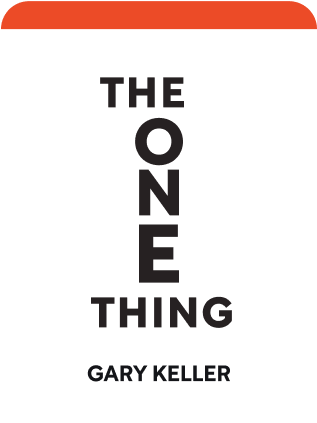

This article is an excerpt from the Shortform book guide to "The One Thing" by Gary Keller. Shortform has the world's best summaries and analyses of books you should be reading.
Like this article? Sign up for a free trial here .
What is the multitasking myth? What is the truth about getting more done?
Gary W. Keller, the founder of Keller-Williams, argues that the multitasking myth stands in the way of success. It causes people to attempt to focus on more than one thing at a time, ultimately leading to less productivity and poorer performance. Rather than saving time, multitasking wastes time.
Continue reading to learn about the multitasking myth and the disadvantages of multitasking.
The Multitasking Myth
The multitasking myth stands in the way of success. It‘s the belief that you can get more done by multitasking. You can’t.
With impossibly long to-do lists, many people believe the multitasking myth, thinking it is the way to get everything done. People believe it’s something they should learn and practice in the name of efficiency. Web pages and blogs offer instructions. Some employers list multitasking as an essential skill for prospective hires.
However, 2009 research by Clifford Nass of Stanford University showed it doesn’t work. While multitaskers think they’re succeeding, they’re actually performing poorly. Nass found that multitaskers “were lousy at everything.”
As speaker and author Steve Uzzell noted, “Multitasking is merely the opportunity to screw up more than one thing at a time.”
Origins of Multitasking
Multitasking might be a holdover from humans’ earliest days, when they had to watch their surroundings for predators while doing other things like picking berries. We seem to be wired to try to do more than one thing at a time. Because we feel so pressed for time, multitasking has become a hallmark of the modern human.
The term multitasking entered the lexicon in the 1960s, when scientists used it to describe computers’ ability to do many things quickly. However, it was a misnomer: rather than doing multiple things simultaneously, computers alternate tasks requiring memory until the tasks are done. Their speed makes it seem like they’re doing things simultaneously.
People actually can do two things at once—for instance, walk and talk. But like computers, we alternate our focus. Or we process different types of information in different parts of the brain. When we’re engaged in two activities, the brain controls one in the background and the other in the foreground.
A conflict occurs when an activity requires a brain channel already in use or when one task demands greater attention—for example:
- If you’re walking across a gorge on a rope bridge, you’ll have to stop talking and pay attention to your hands and feet.
- When you’re “absentmindedly” petting your dog while watching a football game on TV, your dog knows he’s not getting your full attention and nudges you.
- If you’re driving while your spouse is talking to you about rearranging the living room furniture, you’ll focus on a mental picture of the living room instead of seeing the car braking in front of you.
Disadvantages of Multitasking
Because of the persistence of the multitasking myth, today’s workplaces are a multitasking circus. This costs time and productivity.
For instance, when a coworker interrupts you with a question while you’re working on a spreadsheet, you have to switch your attention to the new task and then later restart the one you suspended. This takes time—researchers estimate that employees are interrupted every eleven minutes and spend a third of their day recovering from interruptions. It also takes longer to do things. Depending on the complexity of the task, switching can add 25% to 100% more time to completing it.
Besides external interruptions, there are other distractions. Computer users change windows or check email or other programs 37 times an hour. You actually get a jolt of dopamine when you switch, making attention-shifting addictive.
To sum up the disadvantages of multitasking:
- When you divide your limited brain capacity, you decrease your effectiveness.
- The more time you spend on a task you switched to, the less likely you are to resume your original task.
- When you bounce between activities, you lose time as your brain reorients.
- Multitasking skews your sense of how long it takes to do things and you overestimate the time required.
- When you multitask, you make more mistakes and make bad decisions because you favor new information over old, whether it’s relevant or not.
- Multitasking creates stress. While we think we’re multitasking, we’re driving ourselves crazy.
Multitasking doesn’t save time; it wastes time. This is why the multitasking myth stands in the way of success.
The Cost of the Multitasking Myth
Society is beginning to understand and take seriously the risks of distraction in one area: driving a motor vehicle. Distracted driving causes 16% of fatalities and a half-million injuries a year. Talking on the phone while driving can take 40% of your focus and can have the same effect as driving drunk.
As a result of the increased awareness, many states and communities have banned using the phone while driving. We should take distraction just as seriously at work and in our home life.
If you lose a third of your workday to distractions, imagine what it costs you and your business over the course of a career. Distractions erode your personal relationships each time you ignore the needs of your spouse, children, or friends to check your cell phone.
All of this is a steep price to pay for something—multitasking—that doesn’t work to begin with.
You won’t succeed in your work or life unless you throw out the multitasking myth and figure out what matters most in the moment and give it your undivided attention.

———End of Preview———
Like what you just read? Read the rest of the world's best book summary and analysis of Gary Keller's "The One Thing" at Shortform .
Here's what you'll find in our full The One Thing summary :
- Why focusing daily on one thing, rather than many, is the key to success
- How success is like dominos
- The six common myths about success






